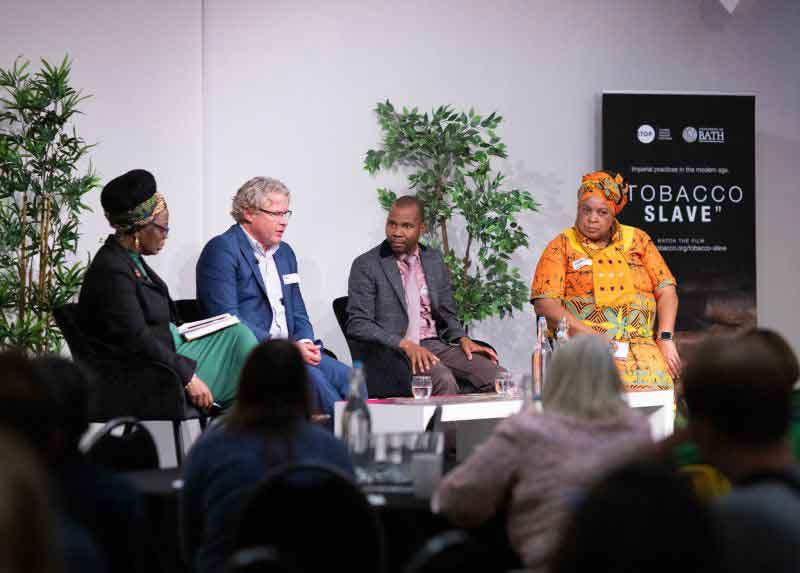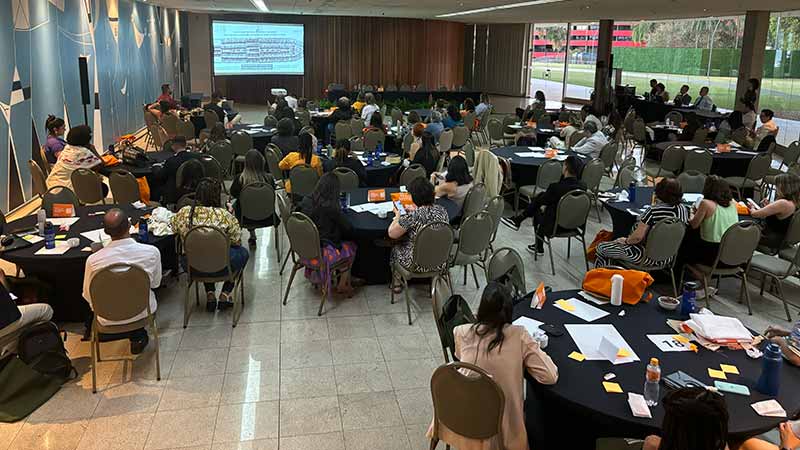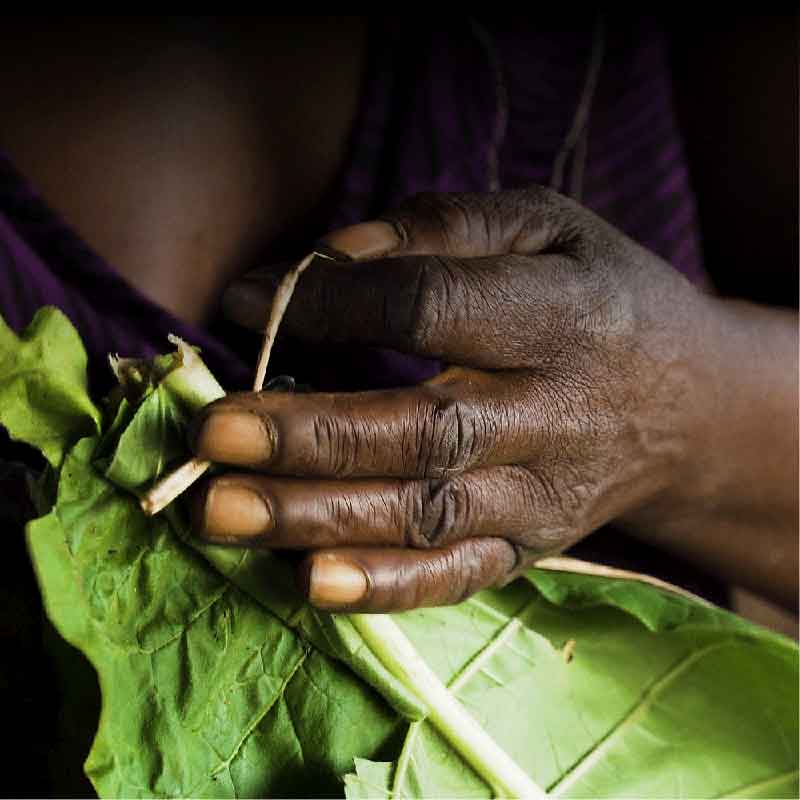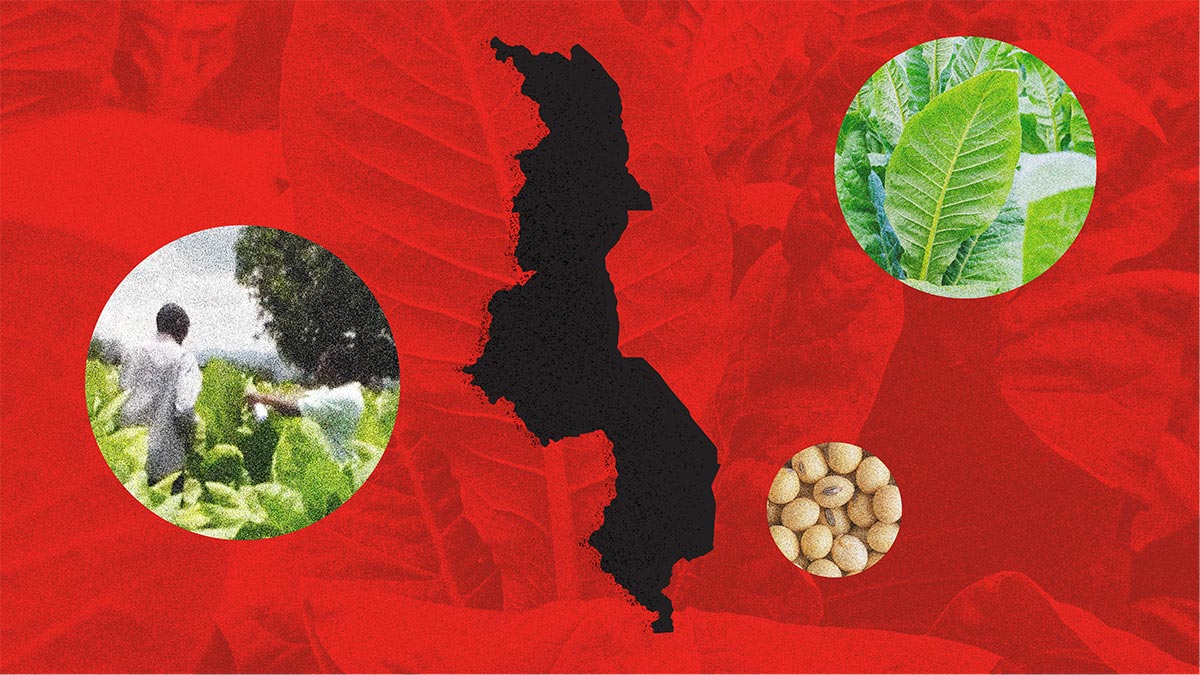- Resources
- News
-
-
Get Email Updates
Sign up for STOP's emails and never miss an update on our latest work and the tobacco industry's activity.
-
Get Funding
Ready to tackle industry interference? You could be eligible for a grant.
-
Share a Tip
Do you have information on tobacco industry misconduct in your country? Let us know.
-
Get Email Updates

It’s been a huge year for “Tobacco Slave,” the film by STOP and the University of Bath’s Tobacco Control Research Group chronicling the lives of Malawi’s tobacco farmers.
The film, in which farmers share their experiences working under a contract system tilted heavily in Big Tobacco’s favor, won two Communicator Awards and was shortlisted at the World Health Organization’s 5th Health for All Film Festival.
More importantly, the film has sparked conversation, debate and reflection on how the tribulations of Malawi’s farmers mirror experiences in other tobacco-growing nations. The discourse explored child labor, the ghosts of colonialization and Big Tobacco convincing hunger-plagued nations to prioritize tobacco over food.
The production has traveled the globe, featuring in four screenings and wide-ranging panel discussions—with more screenings planned. Here’s how “Tobacco Slave” has resonated with audiences around the world.
Brazil, where tobacco farmers have similar stories
Brazil is the world’s largest exporter and third-largest producer of tobacco leaf. In August, Tainá de Almeida Costa, Vital Strategies’ senior communications manager in Brazil, presented the film to about 120 policymakers, public health professionals and advocates in Brasilia.
In a country with a vibrant labor movement, parallels were drawn between the Malawian tobacco farmers and their counterparts in southern Brazil. João Peres of investigative outlet O Joio e O Trigo shared stories of abusive contracts that don’t permit farmers to diversify their crops, child labor and instances of green tobacco sickness, an ailment caused by handling uncured leaves.
Brazil’s implementation secretary for the WHO’s Framework Convention on Tobacco Control offered positive news on a program to transition tobacco farmers to alternative crops. The tobacco industry worked hard to weaken the program, but the secretary outlined efforts to improve it by coordinating academics, government ministries and other stakeholders.

In Brasilia, over 100 people gathered to watch a screening of “Tobacco Slave” and hear from local advocates about parallels to Brazil’s tobacco farming.
Kenya, where new crops are helping farmers
In Kenya, another African country where tobacco leaf is cultivated, the conversation explored practical solutions to help tobacco farmers switch to alternative crops. The Kenya Tobacco Control Alliance hosted a January screening in Nairobi featuring several speakers who emphasized the tobacco industry is no friend to farmers. The film’s co-director, University of Bath professor Roy Maconachie, was on hand with local government officials, Ministry of Health representatives, youth advocates, agricultural officers and media to discuss how the tobacco industry acts as an agent of exploitation.
Ex-farmer Philip Ochieng shared how the industry lends farmers everything they need to grow tobacco but rarely buys as much as farmers grow. They use the loans to keep farmers beholden as “the debt will just accumulate year after year.”
Nurse Nancy Silong lauded the Tobacco-Free Farms initiative she helped coordinate. It encourages farmers to move away from tobacco, into crops like high-iron beans. The program serves a dual purpose in addressing nutrition and development issues. She told the audience, “We are working to help Kenyan farmers who are trapped in the cycle of growing tobacco to transition to … better alternatives for the environment, for the economy, for their health—and we’re seeing great success.”
United Kingdom, where a city’s colonial past can’t be ignored
The tobacco industry’s colonial past and echoes of colonialism in the modern-day tobacco business were central themes at the screening in Bristol. Imperial Brands, one of the world’s largest tobacco companies, is based here with a legacy tracing back to the city’s days as a trans-Atlantic slave hub. The company, alongside British American Tobacco, is currently being sued by thousands of Malawi’s tobacco farmers and children, alleging exploitative practices.
Bristol Deputy Mayor Asher Craig led a November 2023 panel discussion, which included Maconachie, Malawian social sciences and development expert Lonjezo Masikini-Phiri and Jendayi Serwah, founder of the John Lynch Afrikan Education Programme.
The conversation moved from exploitation to farmer reparations, and Serwah urged caution, noting that if you begin to hold people accountable, capitalism demands the money come from somewhere. That may be from the very people victimized to begin with.
“A lot of what holds up the global north economically is through the raping, pillaging and extractions and exploitation of the global south,” she said.
Masikini-Phiri addressed the notion, perpetuated by the industry, that Malawi’s economy is so dependent on tobacco it would be harmful to abandon. That’s false, he said, because 95% of Malawians survive without producing tobacco. Don’t believe industry claims about helping farmers, he said, “because we have been blindfolded. We have been captured to think it’s only tobacco that will benefit Malawi.”

...The debt will just accumulate year after year.
Philip Ochieng, former tobacco farmer
United States, where a broader discussion on slavery unfolded
Vital Strategies hosted the film’s New York premier at a VitalTalks event in October 2023 in a packed room featuring representatives from Tobacco Free Portfolios, Concentric Policies, Memorial Sloan Kettering Cancer Center and others in public health.
Journalist Shakuntala Santhiran moderated a panel, in which Maconachie explained the film sprang from the idea of “exploring and uncovering some of those legacies of slavery and tobacco in Bristol and then working outwards and looking at how those legacies are perpetuated in contemporary tobacco growing.”
This sparked conversation on modern slavery and human trafficking across many industries, tobacco included. Because of the lack of transparency in supply chains, consumers are lulled into believing such cruel practices can’t happen today, said Noy Thrupkaew, director of the Ida B. Wells Fellowship Program at the Type Media Center. Yet they are, she said, and “that is knowledge that is deliberately being concealed from us.”
The night closed with STOP Director Jorge Alday outlining ways to loosen Big Tobacco’s grip: Nongovernmental organizations can help farmers quit tobacco, as is happening in Kenya; governments should stop subsidizing wealthy tobacco companies and assist in the transition to other crops; and those harmed by the industry should pursue legal remedies such as the Malawian farmers’ lawsuit.
“As we see from the film, from crushing debt to working in atrocious safety standards, tobacco farmers are at the beginning of a very long, complex global supply chain of harm,” Alday said. “Increasingly, that supply chain starts in Africa.”


